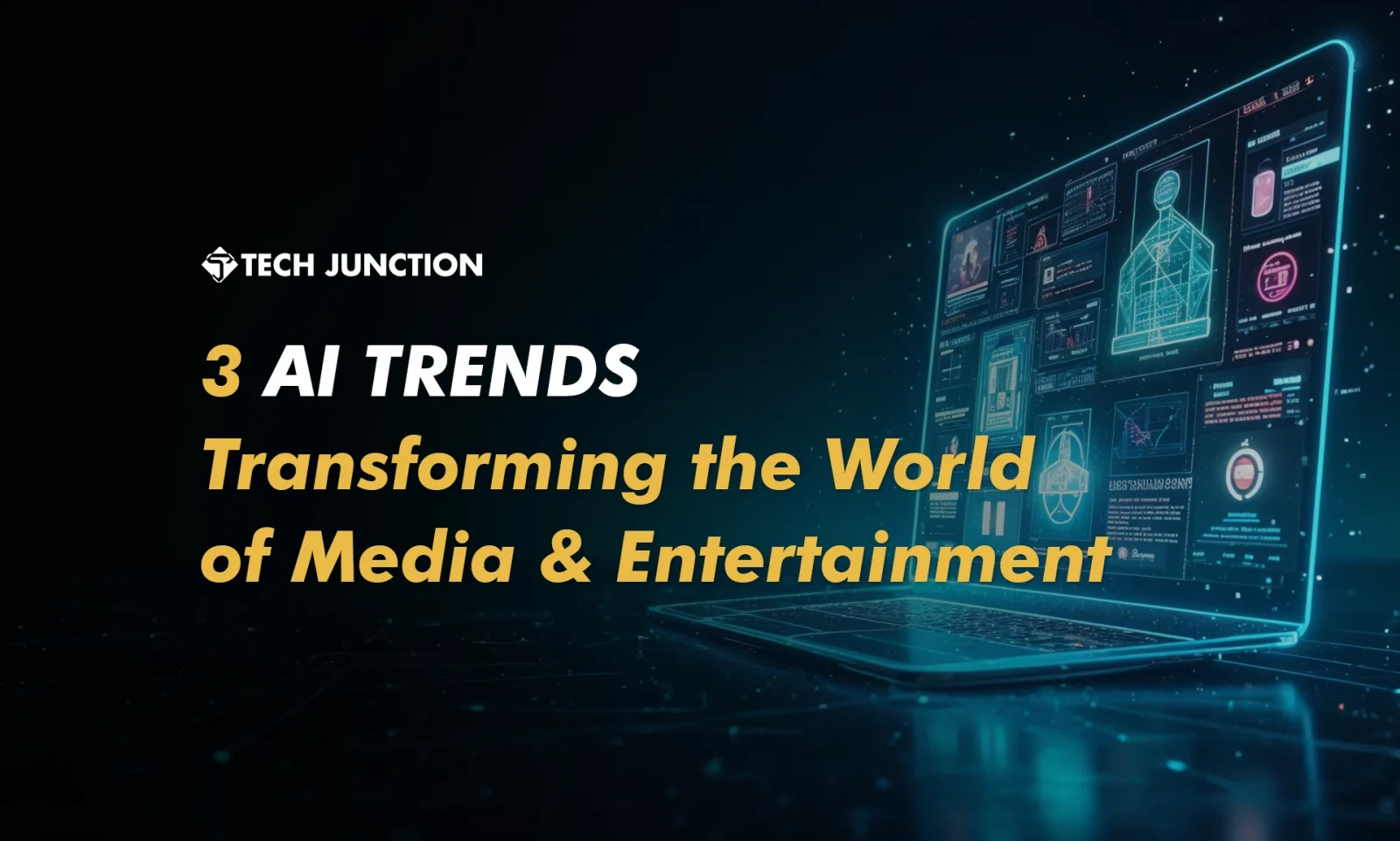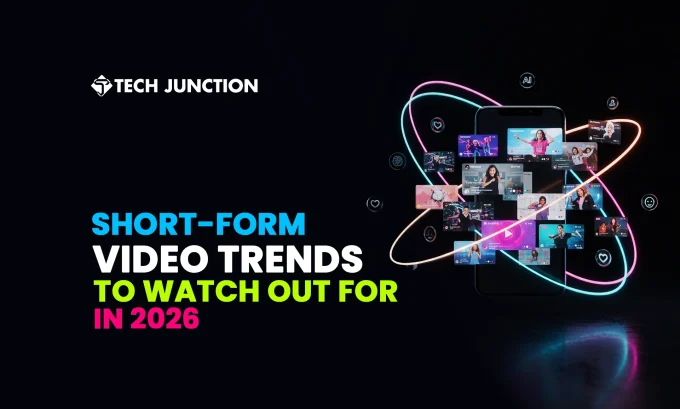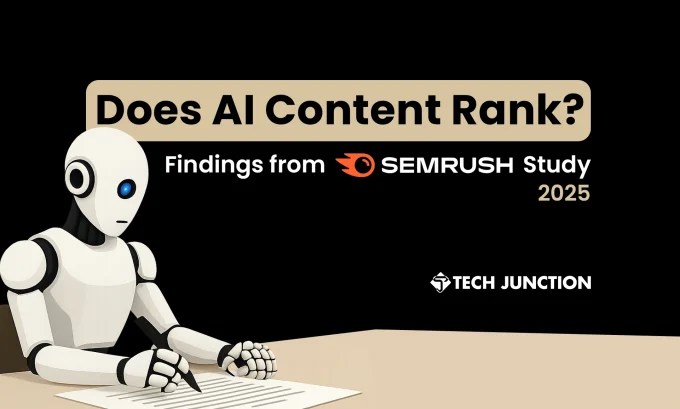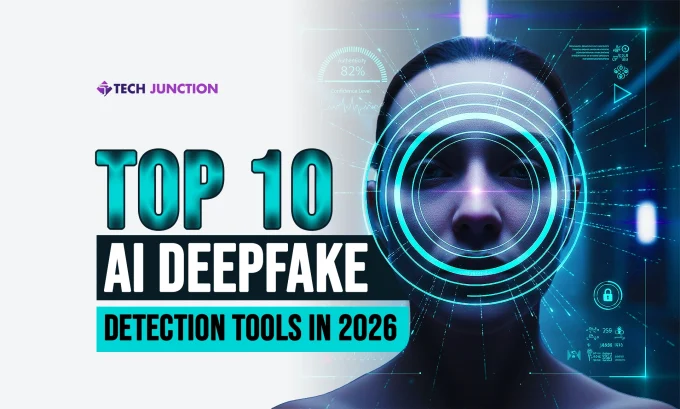Almost everything on the internet and in digital media is changing because of AI. Videos, music, shows, and even the way we watch content are all being changed by smart tools. An AI can now write a show, translate it instantly, and deliver a version that fits each viewer. This isn’t about the future. It’s happening now. These changes aren’t just about speed, they’re about creating new experiences. Here are three AI trends that are shaping the media and entertainment industry right now.
AI in Entertainment Industry: Tiered Generative AI Adoption
AI content generation is now a creative partner in entertainment. Studios are increasingly comfortable using generative AI for both mundane and artistic tasks.
AI as a Creative Helper
On the functional side, repetitive production works such as editing, mastering, or basic visual effects can be handed off to AI without sacrificing artistic integrity. This speeds up workflows and lets human creators focus on storytelling.
On the higher end, filmmakers are cautiously using AI for creative enhancements like visual effects, color grading, or even touch-ups on performances. These tools help polish the final product without taking away from the story. The goal is to augment human creativity, not replace a human with AI.
How One Film Used AI to Enhance Performance
In the 2024 film The Brutalist, in wich the director used AI to subtly enhance the lead actors’ Hungarian accents in post-production. This controversial choice was made to serve the creative vision the actors’ performances stayed front and center, and AI simply amplified authenticity. It’s a prime example of AI entertainment in practice. AI was used as a tool to refine the final product in a way that would be hard or costly to do manually.
AI for Creative Prototyping
We also see experimental uses of generative AI in content creation. Recently, we have seen AI-generated music scores and scripts. While fully AI-written movies are not here (and face creative and ethical pushback), writers and artists are starting to use these tools to brainstorm ideas and prototype content.
By using these artificial intelligence trends, studios can produce more content faster without significantly raising costs. This shift is important at a time when the media and entertainment industry faces pressure to keep up with streaming platforms, social media content, and video games that constantly vie for audience attention.
Generative AI is becoming a secret weapon to meet demand and it is enabling the entertainment media sector to scale up content creation while maintaining quality.
Why It Matters
Audiences demand fresh, high-quality content, and they don’t want to wait. Generative AI helps creators deliver new films, shows, and music at a faster pace. It can also personalize elements of storytelling (for instance, adjusting a narrative or visuals for different markets) without requiring separate productions.
As an AI trend, generative tech in entertainment is all about blending human imagination with machine efficiency. Creators who adopt these tools strategically can enrich their projects with stunning effects or globalized content.
The use of AI in entertainment doesn’t mean handing over the paintbrush to a robot; it means letting the AI mix new colors for the artist’s palette.
AI in Media: Agentic AI Systems for Smarter Workflows
Agentic AI is changing how media companies work behind the scenes. These AI tools manage tasks, adjust processes, and improve content delivery without constant human input.
Smarter Post-Production with AI
If generative AI is the creative side of the revolution, agentic AI (adaptive AI agents) is the smart engine working quietly behind the scenes. This trend involves AI systems that can make intelligent decisions in real time and adjust processes without constant human guidance. Media companies are integrating these media AI tools to streamline everything from post-production to content distribution.
In post-production, agentic AI can automate the boring and time-consuming tasks that used to bog down creative teams.
For example, sorting through hours of footage for a documentary or reality show can be exhausting. AI can handle the first round by tagging scenes, selecting key moments, and balancing audio much faster than a human could.
In fact, experts note that any workflow step with a progress bar (rendering, transcoding, file tagging, etc.) is a perfect target for AI assistance. By handling such tasks, AI protects human editors and producers from burnout and lets them spend time on the creative decisions rather than technical grunt work.
AI for Localization and Personalization
Another area agentic AI is transforming is localization and personalization. Entertainment is global, and viewers expect content in their own language and cultural context. Agentic AI can fine-tune dubs and subtitles to suit regional preferences, often in real time.
For example, an AI system could adjust a joke in a script to make more sense to an Australian audience versus an American audience, or choose a different idiom in subtitles for the UK market. It makes sure that content feels local to every viewer.
These AI agents also optimize how content is delivered on different platforms. They can decide, without being explicitly told each time, which scenes to highlight in a trailer, or what thumbnail to show a particular user based on what’s likely to grab their attention. They even help streaming services and social networks tailor recommendations spotlighting trending shows or videos for each user, based on viewing habits.
In short, the AI monitors audience data and adapts content delivery on the fly to maximize engagement.
Agentic AI Helps Media Work Faster
For media companies, this AI in media industry trend is opening new possibilities. An agentic AI system can manage and distribute an immense library of content far more efficiently than a human team alone.
It can automatically repurpose a TV show clip into a snappy social media video or adjust a streaming service’s bandwidth and video quality per user to ensure smooth playback. It’s like having a tireless digital assistant making sure every piece of content gets to the right audience at the right time. This level of automation and intelligent optimization is helping the media and entertainment industry operate at a new scale.
Entertainment trends now lean heavily on personalization and viewers expect platforms to serve them content tailored to their tastes. Agentic AI makes that possible in real time and it keeps people engaged and coming back for more.
Why Agentic AI Matters
Efficiency and user experience are king in any industry. By adopting agentic AI, studios and streaming platforms cut costs and operational drag. They can do more with the same resources, whether it’s managing content archives or launching multi-language releases. More importantly, these AI systems help meet audience expectations for instant, personalized entertainment. In a world where AI is trending across industries, the media cannot afford to stay manual.
Agentic AI offers a path to work smarter: news can be delivered faster, shows can be localized seamlessly, and even AI for social media content (like automatically edited promo videos or highlight reels) can keep fans engaged between big releases. This trend empowers creative teams to focus on creating while the AI handles the logistics of getting the right content to the right people.
The Future of Entertainment: Real-Time AI and Global Monetization
AI is now changing how live content reaches audiences. What once took days now happens in real time.
Real-Time AI Makes Live Content Global
Live events and real-time content are emerging as the next frontier for AI in entertainment. In the past, if you produced a live TV special or sports game, reaching international audiences was a huge challenge.
By the time you translated or edited the footage for other regions, the buzz was over. Real-time AI is changing that and it is turning live media into instant global content. This is a glimpse of future TV technology at work.
AI Dubbing and Subtitles on the Spot
One of the most exciting developments is AI-powered live dubbing and subtitling. It has become possible due to advanced AI voice models that broadcasters can now translate and dub live broadcasts on the fly into multiple languages.
For instance, a football match airing in the U.S. can be simultaneously broadcast in Spanish, French, or Mandarin, with AI voices providing commentary almost instantly. Viewers around the world can enjoy the event in their preferred language without waiting days for a post-produced version.
This instant localization keeps global audiences hooked during high profile live events like sports championships, concerts, or award shows. It also opens up new markets to the people who never had access to certain live content before can now tune in and feel included in the excitement.
AI Increases Revenue from Live Content
The monetization potential here is huge. By using AI to broaden real-time reach, media companies can increase viewership and engagement. More live viewers mean more advertising eyeballs and higher sponsorship values.
For example, if a streaming platform can offer a live concert to audiences in 50 countries at once (each with localized audio or captions), the platform can attract international sponsors and sell more ads, as they know the audience is far larger than a single-language broadcast.
Small and mid-sized studios stand to gain as well, and they can compete with the big players by using these AI tools to distribute their live content globally without a massive localization budget.
In essence, AI levels the playing field, enabling nimble content creators to discover new audiences and revenue streams beyond their traditional reach.
AI Adds Interaction to Live Shows
Real-time AI isn’t just about translation. It can also enhance live audience engagement. Think of interactive streaming events or live TV shows where AI could personalize the experience for viewers.
For instance, an AI system might adjust a live trivia game show’s difficulty based on the audience’s responses in different regions, or switch camera angles in a live concert for each user (maybe one person gets more guitar solos, another sees more of the drummer) based on what AI thinks they’ll enjoy.
While these scenarios are experimental, they hint at how AI might further blur the line between content and viewer. What’s clear now is that AI-driven real-time engagement is among the new AI trends capturing the industry’s attention.
Why Real-Time AI Matters
Live content is valuable because it commands attention in the moment. AI is turbocharging live content’s reach by removing traditional barriers like language and distribution logistics.
This media and entertainment industry trend means a live show can truly be live for the whole world. The result? Audiences get more immediate access to events, and creators get more bang for their buck (or more viewers for their production budget).
This is the future of entertainment unfolding in real time. By combining AI and live media, companies can keep viewers engaged and open up new income opportunities. In a sense, AI is helping turn every big live event into a global event.
AI in Entertainment Industry: A New Standard for Creativity and Speed
Entertainment is changing fast. AI is becoming a key part of how stories are made, shared, and experienced.
AI Works Behind the Scenes
AI is no longer an outsider in show business, it’s becoming a star behind the scenes. These three AI trends (generative AI creativity, agentic AI workflows, and real-time AI monetization) demonstrate how deeply artificial intelligence is weaving into the fabric of entertainment media.
Crucially, none of these innovations replace human creativity or storytelling. Instead, they amplify what creators and businesses can do, be it through faster production, smarter content delivery, or broader audience reach. As one industry saying goes, anything that has a progress bar in the production process is an opportunity for AI to speed it up.
Why AI Supports, Not Replaces
In the right hands, AI allows filmmakers, showrunners, game designers, and even social media influencers to bring their ideas to life more effectively and meet the modern viewer’s expectations.
The future of entertainment will still be driven by great stories and experiences. AI just ensures those stories can travel farther, adapt to the audience, and maybe even evolve with audience input.
Forward-looking studios are already investing in these technologies to stay ahead of AI trends. They know that, pushback or not, AI is poised to usher in the next era of media and entertainment.
Bottom line
AI trends in media aren’t hype it is actually happening. Audiences might not see it, but the effects are there every time a recommended show pops up perfectly tailored to your taste, or when you watch a live event with seamless subtitles. Using AI responsibly and creatively will define the winners in the entertainment industry’s next chapter. The companies and creators that balance innovation with artistry will find that AI is not just a buzzword but a powerful ally in telling the stories of tomorrow.
FAQs - 3 AI Trends Transforming the World of Media & Entertainment
1. How is Artificial Intelligence Impacting the Media Industry?
AI automates tasks such as video editing and content creation, thereby speeding up production and reducing costs.
2. In What Ways Is AI Transforming Media Consumption?
AI personalizes content recommendations on platforms like Netflix and YouTube, making it easier for users to discover shows or movies that align with their interests.
3. What Are Some Notable Examples of AI in Entertainment and Media?
AI powers content recommendations on streaming platforms, automates video editing, and creates realistic CGI in movies.
4. How Does AI Influence the Media Landscape?
AI improves content targeting, enhances user experiences, and automates production processes, making the media industry faster and more responsive to consumer needs.
5. How is AI Used in Media Marketing and Advertising?
AI helps optimize ad targeting by analyzing user data and predicting what content will resonate with different audiences.
6. What Impact Does AI Have on Content Creation?
AI accelerates content creation by automating tasks like video editing, scriptwriting, and even generating realistic special effects.
The Tech Junction is the ultimate hub for all things technology. Whether you’re a tech enthusiast or simply curious about the ever-evolving world of technology, this is your go-to portal.















